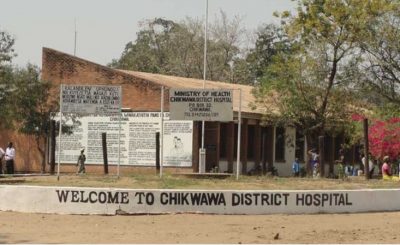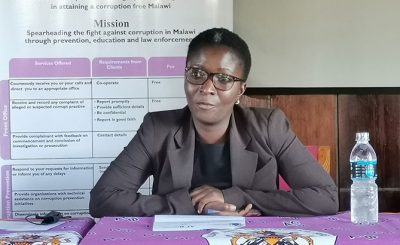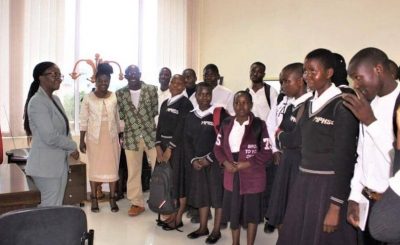Grace Jeke is a 53-year-old social worker, who begun working with Youth Net and Counselling (YONECO), a Non-Governmental Organisation (NGO) on November 11, 2008 as a volunteer at the Drop-in Centre in the southern district of Zomba.
Jeke`s 14-year journey as a social worker, mostly focusing on working with street connected children, has been a period of a mixed bag experience in as far as being a frontline worker is concerned.
“The job of taking care of these children is mostly about mercy because without that, one would not manage this job which requires being calm and patient.
“Don’t be hot-tempered because these are children who have different behaviors because of where they are coming from,” said Jeke.
Jeke, who was recruited as a full-time employee for the organisation on November 12, 2018 was attached to the Lilongwe Social Rehabilitation Centre (SRC) which is a government center being ran in collaboration with Ministry of Gender, Community Development and Social Welfare as a house mother (Matron).
As Malawi joined the world in commemorating the International Day for Street Children (IDSC) on April 12, 2022 under the theme: “Celebrating Frontline Workers”, Jeke`s 14-year journey as a frontline worker has an immersion worthy being celebrated on this day.
As per her responsibilities and duties, Jeke provides guidance and counselling to children, support them during their prep, designs recreational activities, initiating and monitoring the cleaning of hostels, acting as intermediary between parents and the office during odd hours, food preparations and other child protection support-related activities.
Jeke has undergone different capacity building trainings including mental health to make sure children are efficiently supported during their placement at the Center.
Nevertheless, despite such a huge experience, Jeke reckons that working with children is unusual experience which requires learning children`s characters on daily basis, hence challenges are probable.
“When we are in the process of teaching them [children] about good behavior they tend to be rude, they do not listen to what I am saying and even speak badly about me and downsizing me. But as I said it’s all about being merciful and try to help them change their behaviour.”
Away from Jeke, meet another 35-year-old frontline worker, Elijah Thondoya who began working with YONECO on November 12, 2018 and was assigned to Lilongwe SRC as a house father (Patron).
 Thondoya: They just need enough support
Thondoya: They just need enough support
Thondoya`s job as a frontline worker involves providing guidance and counselling to children, escorting them to the hospital for medical support, designing recreational activities, initiating and monitoring cleaning of hostels, acting as intermediary between parents and the office during odd hours, supporting scouting activities as well as home assessments and reintegration.
“Mostly this job is deemed to be difficult considering the nature of a child coming from the streets who relies on begging for resources but they are simply children who just need to be trained so that they can change,” said Thondoya.
Thondoya is passionate about child care and support to make sure children who were once connected to the street are fully reintegrated with full support from the community at large.
Just like any other work, Thondoya says his job too has its challenges that if well looked into and considered can bring a positive impact to the once street-connected children.
He said: “Mostly, things that are needed are those in need for children’s day-to-day life such as good shelter, food, beddings, and everything that would make them feel like they are at home.”
According to the Consortium for Street Children, the world commenced commemorating the IDSC in 2012 with an ultimate aim of recognising the humanity, dignity and defiance of street connected children in the face of unimaginable hardships.
This year`s theme centers around recognising the work and dedication shown by those working on the streets with children, and call for a proper recognition and support to be given to the frontline workers.
There are currently 29 children, who were once street-connected who are residing at the Center with a composition of 14 girls and 15 boys.





